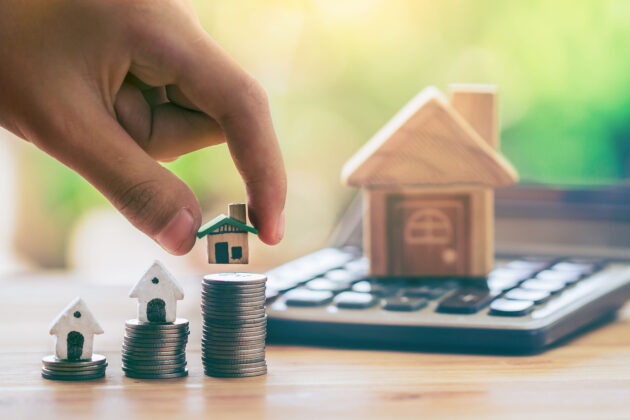Unlike stocks or bonds, property investments are considered the safest way to use your money. However, safest doesn’t mean easiest. Before buying a property, you need to consider many factors, including renovation and repairing, that will affect the final profit. You can significantly reduce costs by looking for free helpers such as a floor plan maker. However, other factors may contribute to other expenses. Read on to examine the issue further.
1. Purposes and Perspectives
Before considering many factors, evaluating methods, and calculating expected cash flows, you should clearly understand your final goals and real market opportunities.
If you don’t know why you need a property, it’s unlikely the investment will be profitable, especially if you take loans or use a mortgage. It’s not a secret that property investments are low-liquid and expensive. Therefore, a poor understanding of final goals will lead to problems.
Below you will find the most common purposes of property investments. They can help you understand why you want to invest in property and what property type will suit you the most.
- Self-use. The first purpose is rarely considered an investment because we all need to live in an apartment or house. Being homeless is not considered normal. However, self-usage is also an investment because you can save on rent.
- Leasing. It’s the most common purpose. Many people buy real estate to rent it out. It’s the fastest way to get regular income and benefit from long-term value appreciation. But you should remember that you may have to deal with disputes and repair costs, and manage tenants’ issues.
- Sell fast. The profit from fast selling is usually lower than those of other investment types. Generally, you buy a property under construction and sell it as soon as it’s ready.
- Sell long. Using this approach, you buy a property but sell it in years, benefiting from its sizable intrinsic value appreciation.
2. Location
After you determine your goals, you can start looking for a property. You should start with the location because it was and will always be the most critical factor when selecting a property for investments. The first thing people ask you when you say you bought the property is where it is. The first thing people consider when renting the property is its location. The first thing people consider when using services is the company’s location. We can continue, but it’s clear that location is vital for property investments.
The location factor consists of numerous points, including:
- The distance to the centre of the city;
- The distance to the metro station (if there is one in your city), bus station, transport hubs, and freeways;
- Infrastructure, including good roads, supermarkets around, kindergartens, schools, beauty salons, gyms, etc. You should understand that the property can be rented or bought by people with different needs. And you should try to consider all of them before making a decision;
- The view also matters. If there is a dump in front of the building, someone will unlikely want to rent or buy it. It’s best if there is a green space or a park nearby;
- Every city is divided into districts. There are expensive districts with a higher status because of their history or location and cheaper districts that aren’t worse. In most cases, they are just new and further from the centre.
These factors should be considered both for commercial and residential real estate. Therefore, when selecting the location, you should consider middle-to-long-term perspectives of a certain area. For instance, you should understand whether the area will grow or if the buildings around are so old that they will be dismantled soon.
If the area is full of residential buildings, it’s unlikely manufacturers will be located near. However, if the land is empty, you should review the intended usage of the area you plan to invest in. Such information can be received via municipality or other government bodies responsible for zoning and urban planning.
3. New or Old Construction
Existing and new constructions have pros and cons. For instance, a new property is cheaper and offers modern amenities. However, if the building is under construction, there can be delays, a long period of area development if it’s a new district and uncertainties about future constructions.
The existing property is available earlier, and you can examine the infrastructure. However, the construction age makes sense. If it’s an old building in the city centre, it will be highly expensive and will require your additional expenses for repairing. If it’s not in the centre, the price may be lower. Still, there is a risk the building will be demolished soon or will also require repairing.
Look at these points to make a decision:
- Reputation. You should check reviews on the construction company when investing in a new property.
- Reports. If you plan to invest in an existing property, look for appraisal reports to be sure the construction will be in good condition for years.
- Costs. You should consider monthly payments that will arise when you start owning the property. Utility expenses vary from area to area and will affect your budget significantly.
- Leased property. If you invest in the leased property, you should know everything about it, whether it’s rent-controlled, rent-stabilized, or free market, when the lease will expire, and what is included in the rent price.
4. Property Valuation
Real estate valuation is vital for financing during the purchase, investment analysis, listing price, taxation, and insurance. Simply put, a property’s value is the present value of future profits arising from property ownership. Property benefits are realized over the long term, unlike most consumer goods.
This point is vital and complicated as property valuation should consider social, economic, and political trends, regulations, and environmental conditions. These factors can affect the following value elements:
- Demand. Investors and customers desire or need to own certain property supported financially.
- Utility. The ability to meet the needs and desires of future property owners.
- Scarcity. A limited number of competing objects.
- Transferability. How fast the ownership rights are transferred.
Here are the most popular real estate valuation methods:
- Sales comparison. To evaluate how beneficial your investment may be, you should compare sales of properties with similar characteristics. This approach can be applied to old and new buildings.
- Cost method. The property value is calculated as the cost of area and construction minus depreciation. Depreciation stands for an accounting method that is used to allocate an asset’s cost over its useful life. So that it reflects how much of the asset’s value has been used. This approach is mostly used for new constructions.
- Income method. This approach considers expected cash inflows and is widely used for rentals.
5. Expected Profit
It’s the most challenging point because you never know the future. However, it would be best if you had an idea about the potential benefits:
- Profit from rental income;
- Increase in intrinsic value caused by long-term price appreciation;
- Profit from price depreciation and tax benefits;
- Analysis of mortgaged loans versus value appreciation.
Final Thoughts
Property investments require comprehensive market analysis. You should be clear about your purposes and know exactly within what period you want to reach profits.



















